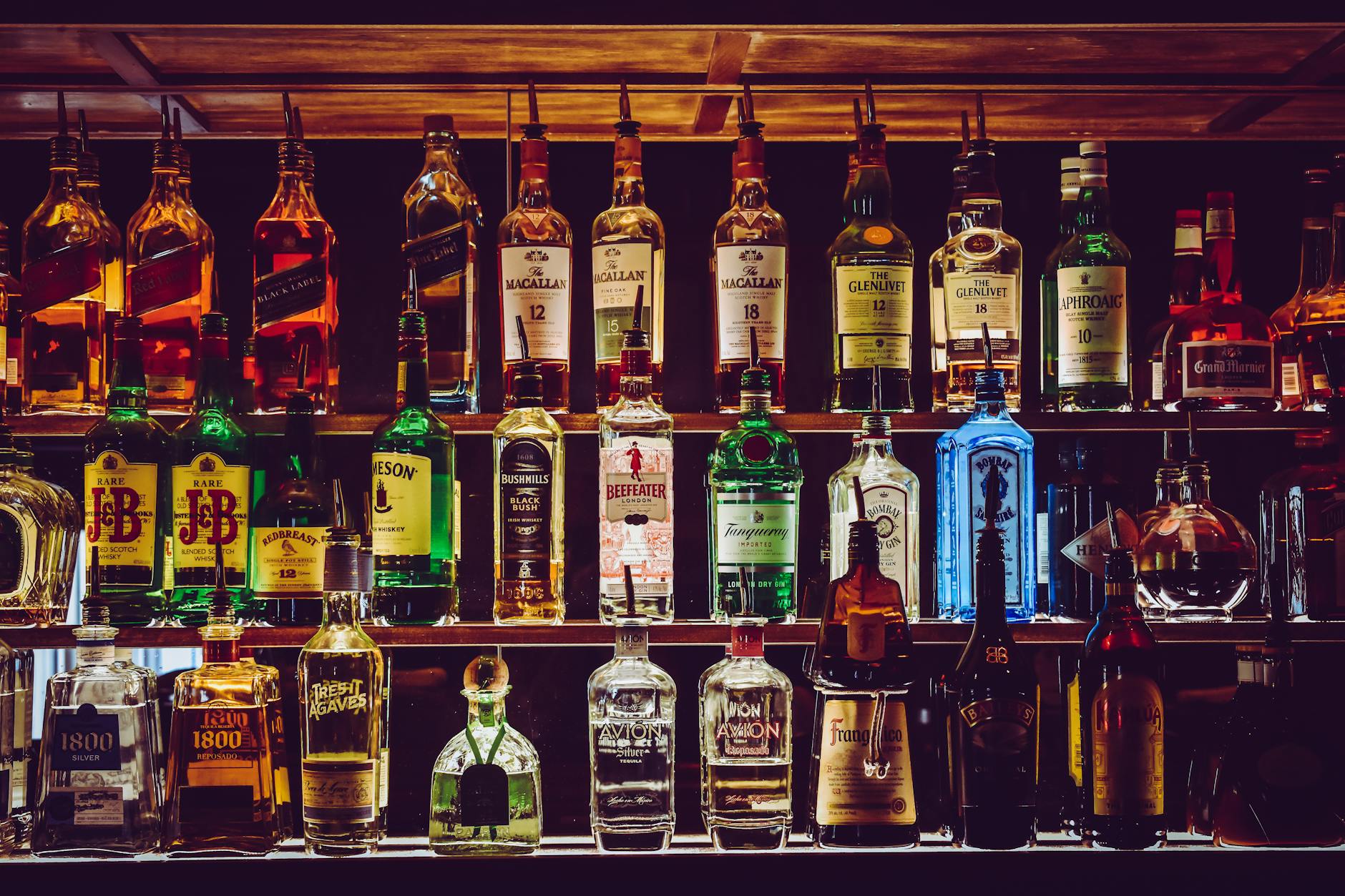Unlock the mystery: Discover the science behind intoxication and delve into the alcohol equation – uncover its secrets now!

Image courtesy of Chris F via Pexels
Table of Contents
Welcome to our comprehensive blog post where we delve deep into the intriguing question: How many beers does it take to get drunk? This age-old query has captivated the minds of many, and today, we are here to unravel the science behind alcohol metabolism, individual tolerance levels, and the various factors that influence intoxication.
Alcohol Metabolism and Blood Alcohol Content (BAC)
Understanding how alcohol is metabolized in the body is key to understanding how many beers it takes to get drunk. When alcohol is consumed, it enters the bloodstream and is subsequently metabolized by the liver. This process affects a person’s Blood Alcohol Content (BAC), which is the measure of alcohol in the blood.
The amount of alcohol consumed, time, and the individual’s body composition all play a role in determining BAC. As a general guideline, a BAC of 0.08% is considered legal intoxication in many jurisdictions, but the effects of alcohol can vary from person to person, even at lower levels of BAC.
Alcohol Metabolism and Blood Alcohol Content (BAC)
While alcohol metabolism is a significant factor in determining intoxication, it is not the only one. Various factors can influence an individual’s level of drunkenness, including body weight, gender, age, and overall health.
Body weight plays a crucial role since alcohol is distributed differently throughout the body based on fat content and muscle mass. Generally, people with a higher body weight possess more body water, which helps dilute alcohol and, thus, reduces its effects.
Gender differences also exist due to variations in body composition and metabolism. On average, women tend to have lower alcohol dehydrogenase (ADH) enzymes, responsible for breaking down alcohol, which can result in higher BAC levels compared to men consuming the same amount of alcohol.
Age can influence alcohol tolerance as well. As we age, our metabolic rate slows down, and our liver becomes less efficient at processing alcohol. This means that the same amount of alcohol will have a more significant impact on older individuals compared to younger ones.
Other factors, such as overall health, can affect intoxication levels. Chronic conditions, liver disease, or medication can impair the liver’s ability to metabolize alcohol, leading to increased susceptibility to its effects.
Factors Influencing Intoxication Levels
Understanding your own alcohol tolerance is vital when it comes to gauging intoxication levels. Individual variations in tolerance can be influenced by genetic factors, overall drinking history, and tolerance build-up.
Genetics play a role in how well our bodies metabolize alcohol. Certain genetic variations can result in less efficient alcohol metabolism, leading to higher BAC levels and increased sensitivity to alcohol’s effects.
Drinking history also impacts alcohol tolerance. Regular, moderate drinkers tend to have a higher tolerance due to their livers developing better enzymatic activity to process alcohol. Conversely, infrequent drinkers may have lower tolerance levels and experience the effects of alcohol more prominently.
Tolerance build-up occurs when the body adapts to regular alcohol consumption. Over time, the liver becomes more efficient in metabolizing alcohol, resulting in individuals needing more alcohol to achieve the same level of intoxication.
levels name=”individual-tolerance-levels”>Individual Tolerance Levels
There are several common myths surrounding alcohol consumption that should be debunked. One popular belief is that “beer before liquor, never sicker.” In reality, the type of alcoholic beverage consumed does not impact intoxication levels. The key factors in determining intoxication are the amount and rate of alcohol consumption.
Another commonly held misconception is that eating before drinking can prevent or reduce intoxication. While food in the stomach can slow down the absorption of alcohol, it does not eliminate the effects entirely. Alcohol will still enter the bloodstream and be metabolized, albeit at a slightly slower rate.
Debunking Myths and Common Misconceptions
undefined
Conclusion
So, how many beers does it take to get drunk? The answer is not a simple one, as it depends on various factors such as alcohol metabolism, body composition, individual tolerance, and more. It is essential to recognize that everyone’s response to alcohol is unique.
To ensure responsible drinking, it is crucial to know your own limits, be aware of the factors that influence intoxication, and prioritize personal well-being and safety. Understanding the science behind alcohol metabolism and individual factors can help you make informed decisions and enjoy alcohol responsibly.
Remember, moderation is key. If you choose to consume alcohol, do so in a responsible manner, be mindful of your limits, and always prioritize the safety of yourself and others.
FAQ
How many beers can I drink without getting drunk?
The number of beers you can drink without getting drunk varies based on factors such as body weight, metabolism, and tolerance. It is different for each individual. It is essential to know your own limits, drink responsibly, and be aware of how alcohol affects you personally.
Does the type of alcohol I drink affect my level of intoxication?
No, the type of alcohol you consume does not directly impact your level of intoxication. It is the amount and rate of alcohol consumption that determine intoxication. Whether you choose beer, wine, or spirits, the key is to monitor your overall alcohol intake and drink responsibly.
Can eating before drinking prevent or reduce intoxication?
While eating before drinking can slow down the absorption of alcohol, it does not eliminate the effects entirely. Alcohol will still enter your bloodstream and be metabolized, albeit at a slower rate. It is always important to drink responsibly, regardless of whether you have eaten before or not.
Can my tolerance to alcohol change over time?
Yes, tolerance to alcohol can change over time. Regular, moderate drinking can lead to a higher tolerance as the body becomes more efficient at metabolizing alcohol. On the other hand, if you stop drinking for an extended period, your tolerance may decrease, and the effects of alcohol may be more prominent.
Leave a Reply